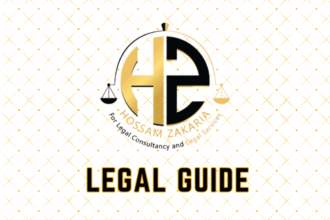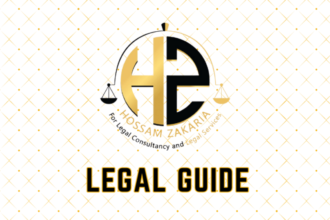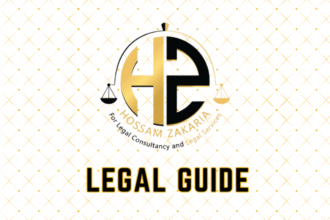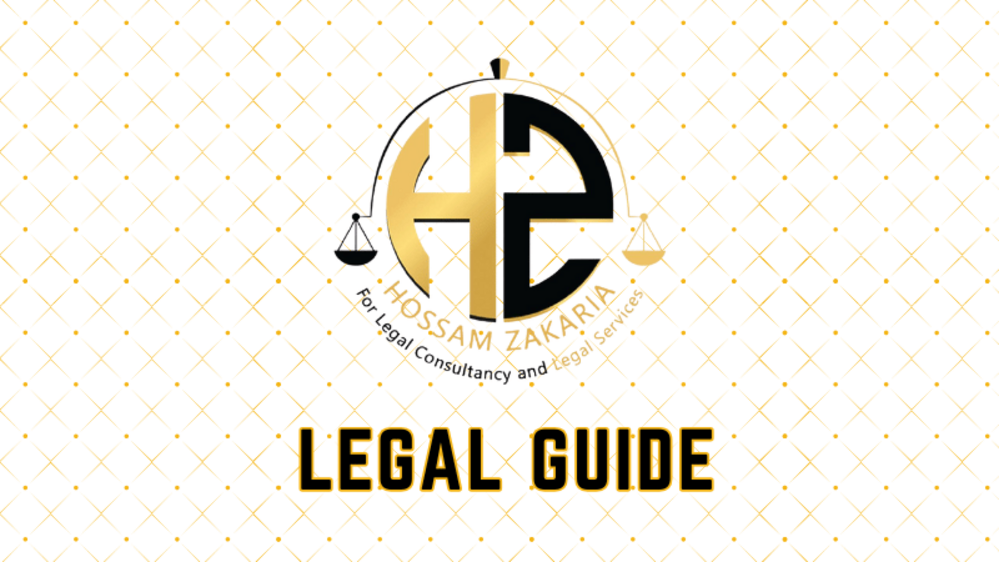Introduction
The rapidly evolving commercial aviation landscape between the United Arab Emirates (UAE) and the Kingdom of Saudi Arabia (KSA) requires both legal precision and cross-jurisdictional understanding from UAE-based stakeholders. As Saudi Arabia advances its Vision 2030 initiatives and modernizes regulatory oversight, airline operators—particularly those registered in or interacting with the UAE—face a complex set of legal duties and compliance requirements when operating in or over Saudi territory.
This article provides an authoritative and consultancy-oriented analysis of the legal responsibilities imposed on airline operators under Saudi jurisdiction. It dissects recent legislative updates, especially those arising from the Saudi Civil Aviation Law (enacted or amended up to 2024) and the implications for commercial and private carriers serving, overflying, or interacting with Saudi airspace and territory. Of particular relevance for UAE organizations and professionals concerned with airline operations, aviation logistics, HR, and risk management, is an understanding of how these legal frameworks interface with UAE federal decrees, compliance strategies, and regulatory obligations under UAE law—especially in light of the UAE’s 2023-2025 legal reforms in civil aviation and cross-border business operations.
This expert legal review is designed to assist business owners, executives, aviation professionals, HR managers, and legal practitioners in the UAE to anticipate, manage, and mitigate legal risks associated with Saudi aviation rules, ensuring seamless international operations and robust legal compliance in a dynamic regulatory environment.
Table of Contents
- Understanding the Regulatory Framework
- Key Legal Duties of Airline Operators Under Saudi Jurisdiction
- UAE-Saudi Legal Context and Interoperability
- Compliance Analysis and Comparative Overview
- Case Studies and Practical Applications
- Risks of Non-Compliance and Proactive Compliance Strategies
- Conclusion and Forward-Looking Guidance
Understanding the Regulatory Framework
Saudi Civil Aviation Law: Core Provisions
The Saudi Civil Aviation Law forms the backbone of regulation regarding airline operator duties within Saudi jurisdiction. As of 2024, the key legislative instruments include the Civil Aviation Law (Royal Decree No. M/44, 2005, as amended), the General Authority of Civil Aviation (GACA) Executive Regulations, and a host of ministerial resolutions relating to safety, security, consumer protection, and environmental standards. The legislative environment has seen further modernization efforts in alignment with Saudi Vision 2030 and evolving international standards.
Primary legal sources:
- Royal Decree No. M/44 (2005) – Civil Aviation Law
- GACA Executive Regulation (2022 updates and subsequent amendments)
- Relevant ICAO standards incorporated by reference
Regulatory Authorities and Enforcement
In Saudi Arabia, regulatory oversight falls under the General Authority of Civil Aviation (GACA), which exercises both legislative and executive powers with respect to licensing, operating conditions, investigation of violations, and enforcement of penalties. Cross-border operators, including Emirates, Etihad Airways, Air Arabia, and private charter operators from the UAE, must secure necessary authorisations, adhere to GACA’s directives, and continually monitor changes to ensure ongoing compliance.
Key Legal Duties of Airline Operators Under Saudi Jurisdiction
Licensing, Permits, and Approvals
In accordance with Article 7 and Article 10 of the Saudi Civil Aviation Law, no airline may operate to, from, or within Saudi territory without valid physical licenses, operating permits, and route approvals from GACA. These encompass:
- Carrier’s Operating Licence (COL)
- Air Operator Certificate (AOC)
- Supplemental Permits (for charters, wet-leasing, cargo, and ad-hoc flights)
- Security and Safety Clearance Certificates
- Aircraft Airworthiness and Crew Competency Authorizations
All airline operators must maintain up-to-date documentation, ensure prompt renewal of licenses, and prove adherence to ongoing eligibility criteria related to aircraft safety, insurance, ownership structure, and financial solvency.
Safety and Security Compliance
1. Safety Management Systems (SMS): Under GACA’s Executive Regulations (Part 3 and 4), all airline operators must implement comprehensive SMS protocols, fulfilling obligations on proactive risk management, reporting mechanisms, crew training, and aircraft maintenance documentation.
2. Security Protocols: Article 20 of the Civil Aviation Law mandates rigorous compliance with aviation security requirements, including passenger screening, cargo verification, cybersecurity measures, and threat response protocols as set out in GACA Circulars and ICAO Annex 17 standards. Security breaches or failures to comply are subject to investigation and significant penalties.
Passenger Rights and Consumer Protection
Saudi legislation has strengthened passenger rights in recent years. The GACA Regulation on Passenger Protection includes requirements for:
- Clear communication regarding flight delays, cancellations, and denied boarding
- Mandatory minimum compensation standards for delays, cancellations, and baggage loss
- Transparent disclosure of terms, fare rules, and refund policies
- Robust complaint-handling and reporting systems
This framework bears similarities and some differences with UAE’s Federal Law No. 6 of 2022 on Consumer Protection, but Saudi provisions are enforced directly by GACA and may require tailored compliance protocols for UAE airlines.
Environmental Responsibilities
Operators must comply with Saudi and international standards relating to aircraft emissions, noise abatement, and environmental impact reporting. GACA is adopting ICAO CORSIA (Carbon Offsetting and Reduction Scheme for International Aviation), requiring UAE-based carriers operating flights to or over Saudi territory to file verifiable emissions reports and participate in offset mechanisms.
Data Protection and Reporting
Saudi regulations increasingly emphasize secure data handling, protection of passenger information, and real-time reporting of passenger manifests and flight data as per GACA and Ministry of Interior requirements. UAE operators must ensure compliance with both Saudi law and UAE Federal Decree-Law No. 45 of 2021 on Personal Data Protection where passenger information crosses borders.
UAE-Saudi Legal Context and Interoperability
Comparative Overview: Saudi vs UAE Regulation
| Duty/Obligation | Saudi Civil Aviation Law (2024) | UAE Law (including Federal Decree-Law No. 31 of 2021 and updates) |
|---|---|---|
| Operator Licensing | Compulsory GACA licensing for all foreign and domestic operators | GCAA (UAE) licensing; mutual recognition of some documents |
| Safety Management | Mandatory SMS, GACA-specific standards | SMS under UAE GCAA + ICAO standards |
| Passenger Rights | GACA Passenger Protection Regulation (2023-24) | Federal Law No. 6 of 2022 (Consumer Protection) |
| Environmental Obligations | Adoption of CORSIA, local reporting mandates | Emissions reporting to GCAA, CORSIA obligations |
| Data Privacy | Passenger data reporting per Ministry of Interior, emerging privacy law | Decree-Law No. 45 of 2021 (Data Protection) |
Operational Challenges for UAE Stakeholders
UAE airline operators must manage dual compliance obligations when flying to, from, or over Saudi Arabia. Operational strategies include:
- Establishing legal liaison teams versed in both UAE and Saudi aviation requirements
- Harmonizing operational manuals, crew training, and reporting systems to satisfy dual standards
- Implementing continuous monitoring and regulatory update tracking
- Ensuring insurance, indemnification clauses, and contractual safeguards in cross-border agreements
Recent Legal Developments: UAE and GCC Harmonization
The GCC Aviation Accord, signed in early 2023, heralded an era of increased regulatory interoperability for cross-border carriers, yet significant nuances remain. For UAE stakeholders, recent updates under UAE Federal Decree-Law No. 31 of 2021 and Ministerial Decisions in 2022-2024 necessitate integrated compliance not only with local authorities but also with GACA’s procedures and documentation standards.
Compliance Analysis and Comparative Overview
Compliance Burdens: Transition from Old to New Regulatory Regimes
| Key Area | Before 2022 | After 2022 (Current) |
|---|---|---|
| Licensing Procedures | Application-based, annual reviews, less digitalization | Online portal submissions, enhanced documentation, real-time approval system |
| Passenger Rights | Limited regulation; less defined compensation rules | Mandatory compensation and disclosure, new complaint mechanisms |
| Safety Reporting | Periodic manual reports | Continuous digital submission, integrated SMS reporting |
| Environmental Reporting | Voluntary or ad hoc | Compulsory CORSIA reporting, penalties for non-compliance |
Practical Compliance Checklist
| Compliance Task | Status/Notes |
|---|---|
| Obtain or renew GACA Operator License | Annually, via GACA portal |
| Align SMS protocols with GACA/ICAO standards | Continuous updates required |
| Update passenger compensation policies | Per GACA’s 2023 Consumer Regulations |
| Develop CORSIA-compliant emission reporting | Quarterly/semi-annual filings |
| Implement dual-jurisdiction data privacy controls | Coordinate UAE and KSA law compliance |
Case Studies and Practical Applications
Case Study 1: UAE National Carrier Expanding Saudi Routes
Problem: A UAE-based carrier planning direct operations to three new Saudi cities must secure GACA licenses, update crew training to include Saudi-specific regulatory modules, and adapt its passenger compensation policy to satisfy higher Saudi standards.
Analysis: Failure to synchronize operations manuals with Saudi regulations exposes the carrier to flight approvals being rescinded or delays at Saudi entry points. The legal department must establish joint compliance audits with local Saudi partners, update insurance coverage, and standardize customer communication protocols to meet dual requirements.
Case Study 2: Data Protection Conflict in Cross-Border Flights
Scenario: A UAE airline collecting passenger biometric data for expedited boarding in Riyadh faces data transfer restrictions under Saudi law. Saudi authorities require data to be stored on domestically hosted servers, which conflicts with the airline’s UAE-based cloud infrastructure.
Legal Insight: The operator must conduct a data impact assessment, develop segregated data storage, and obtain both Saudi and UAE data protection compliance certification. Contractual frameworks should include indemnities and define jurisdiction for dispute resolution in the event of a data breach.
Case Study 3: Emergency Diversion and Accident Investigation
Event: A UAE-registered private jet is diverted to Jeddah due to severe weather. Post-landing, an incident involving an injured crew member results in a mandatory GACA-led investigation under Saudi law.
Advice: UAE airline operators must have pre-prepared incident-protocol plans, ensure legal representation in Saudi jurisdiction, and understand the hierarchy of liability as determined under both Saudi and UAE aviation law. Immediate post-incident reporting is critical to minimize potential sanctions or reputational harm.
Risks of Non-Compliance and Proactive Compliance Strategies
Legal Liability and Enforcement
Violations of Saudi aviation law can result in severe penalties, including:
- Financial fines (significantly increased under 2022-24 GACA amendments)
- Grounding or seizure of aircraft within Saudi territory
- Personal liability for airline managers or responsible officers
- Suspension or revocation of operating licenses
- Restrictions on future market access
GACA’s enforcement has become more assertive, with regular audits and unannounced compliance inspections. Cross-border disputes may also escalate to formal litigation or arbitration, making robust contractual and insurance planning essential.
Compliance Strategy Roadmap for UAE-based Operators
- Establish dedicated compliance teams spanning both legal jurisdictions
- Appoint a regional compliance officer responsible for Saudi regulatory affairs
- Maintain ongoing dialogue with both GCAA (UAE) and GACA (Saudi) on emerging requirements
- Update employee training to cover evolving Saudi legal provisions
- Develop dual-compliance operating manuals, with regular review and updating
- Review, revise, and stress test insurance, contracts, and risk-transfer provisions
- Conduct regular internal and external compliance audits, simulating real-world incident response
Visual Suggestion: A penalty comparison chart for common compliance breaches by severity, and a process flow diagram illustrating the steps for cross-jurisdictional incident management.
Conclusion and Forward-Looking Guidance
Saudi Arabia’s evolving approach to civil aviation regulation presents both challenges and significant opportunities for UAE stakeholders. The integration of global best practices, enhanced passenger rights, environmental stewardship, and data protection reflects KSA’s ambition for world-class aviation governance—a vision shared by the UAE’s own ongoing legal modernization. For firms and professionals involved in aviation, logistics, or cross-border business, adopting robust compliance systems, harmonized contracts, and continuous legal education are not optional but mission-critical priorities.
Looking ahead, ongoing regulatory alignment across the GCC, support for the digital transformation of aviation law, and deepening cooperation between the UAE and Saudi regulators will fundamentally reshape how airline operators manage legal risk and deliver value. Clients are strongly advised to work closely with specialized legal consultants, anticipate regulatory evolution, and embrace proactive compliance as a core business imperative.
Best Practice Recommendations:
- Formulate internal policies anticipating Saudi and UAE legal updates for 2025 and beyond
- Engage in regular scenario planning, crisis simulation, and incident response drills
- Leverage technology solutions to integrate compliance monitoring, audit trails, and automatic legal update alerts
- Foster transparent communication with regulators, passengers, and partners on legal obligations and rights



